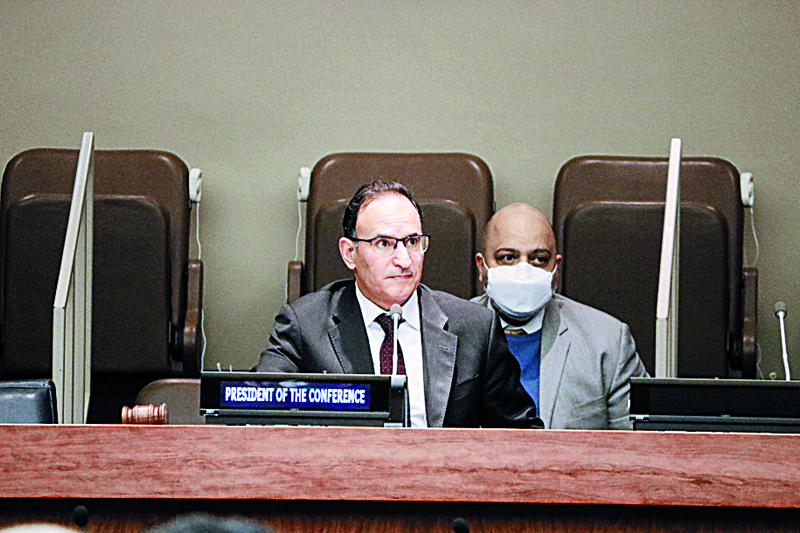 NEW YORK: Kuwait's Permanent Representative to the United Nations Ambassador Mansour Al-Otaibi attends the Second Session of the UN Conference on the Establishment of a Middle East Zone Free of Nuclear Weapons and Other Weapons of Mass Destruction. - KUNA
NEW YORK: Kuwait's Permanent Representative to the United Nations Ambassador Mansour Al-Otaibi attends the Second Session of the UN Conference on the Establishment of a Middle East Zone Free of Nuclear Weapons and Other Weapons of Mass Destruction. - KUNA
NEW YORK: The Second Session of the UN Conference on the Establishment of a Middle East Zone Free of Nuclear Weapons and Other Weapons of Mass Destruction concluded by adopting final documents that would help in continuing and framing the work of the conference in the future. In a statement to the press, Kuwait's Permanent Representative to the United Nations Ambassador Mansour Al-Otaibi said: "The second session of the conference, headed by Kuwait, wound up after five days of intense and painstaking work, as several formal and informal meetings were held before and during the conference".
The conference aims to establish a zone free of nuclear weapons and other weapons of mass destruction to maintain peace and security in the Middle East similar to Latin America, the Caribbean, the South Pacific, Southeast Asia, Africa and Central Asia, Otaibi said. He added that the conferees had adopted and completed a working list that defined the procedures of electing a President and the voting process, as well as how to establish subsidiary bodies affiliated with the conference.
They also agreed on forming a working team that would continue holding meetings during the second and third sessions in the next few weeks to prepare for the upcoming events due to be held in coordination with member states, including the Middle East countries, Otaibi noted. A final "objective" report of the conference, including a preview of the stands of member states on WMD, was adopted after many discussions and consultations during the conference, he added.
Ambassador Otaibi continued saying that the Middle East Region has been suffering from tensions and instability for centuries, in addition to other conflicts since 2010, so establishing a WMD Free-Zone is a must. "In 2019 we built on the success achieved during the first session of the Conference, headed by Jordan, and we are looking forward, during the second session, to make further progress for a WMD-free Middle East," Otaibi concluded.

